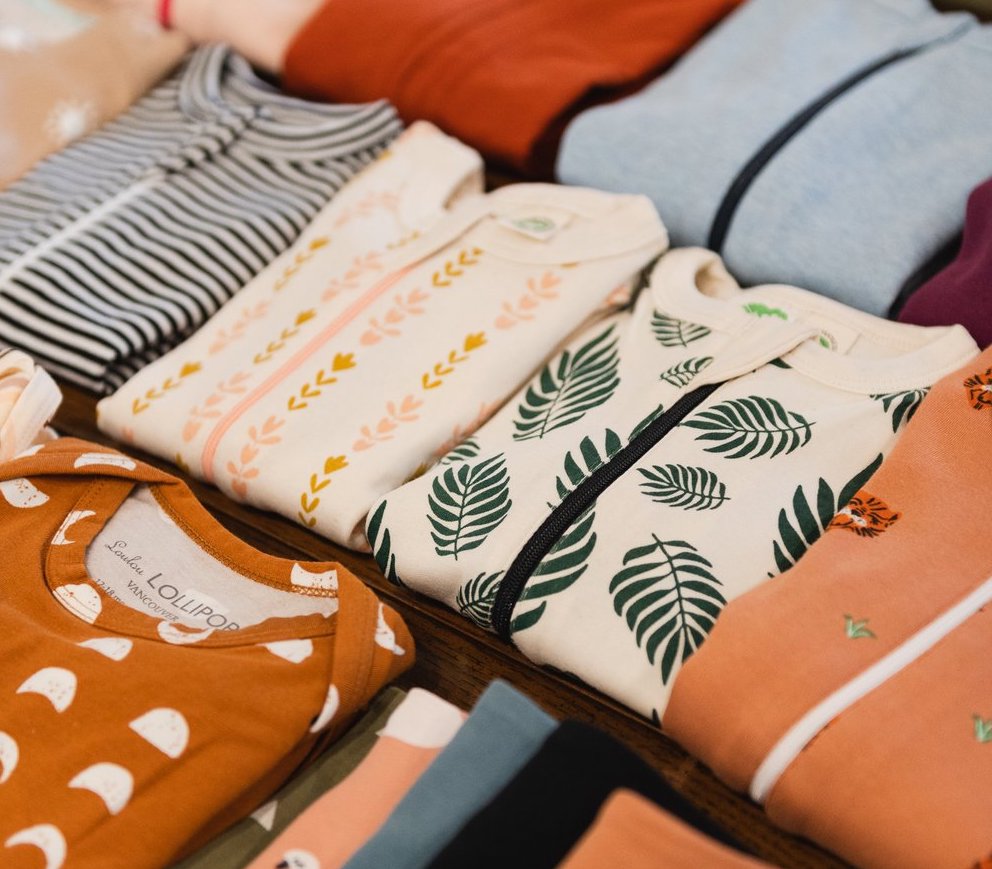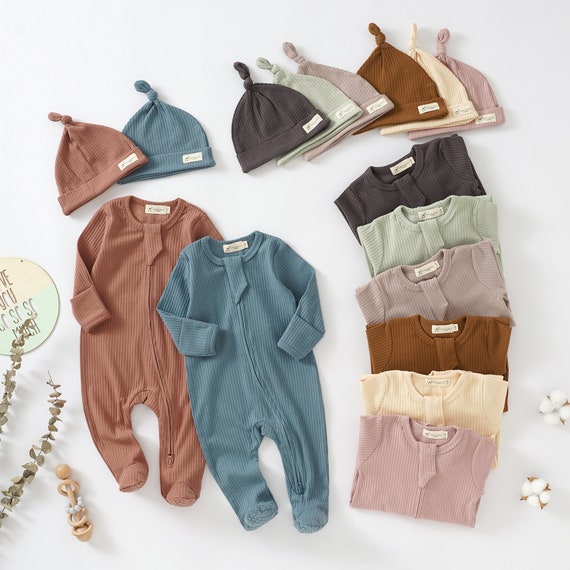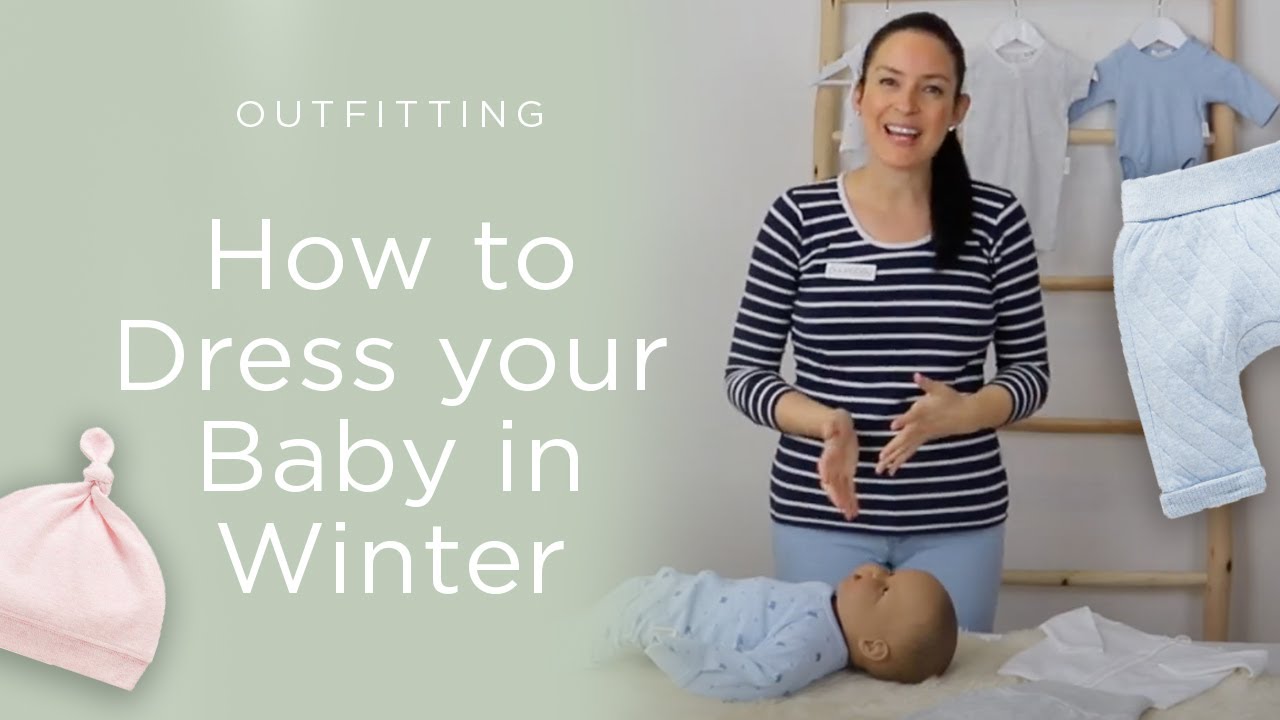Organic cotton baby clothes offer many benefits. They are soft, safe, and eco-friendly.
Parents today want the best for their babies. Clothes made from organic cotton are gentle on delicate skin. They do not contain harmful chemicals found in conventional fabrics. Organic cotton farming uses less water and avoids pesticides. This means fewer allergens and irritants for your baby.
Plus, it’s better for the planet. Choosing organic cotton clothes supports a healthier environment. Babies grow fast, and their skin is sensitive. Organic cotton ensures comfort and safety. Many parents find peace of mind in these natural choices. In this blog, we explore why organic cotton baby clothes are a smart option. We will look at their benefits and how they can make a difference.
Why Choose Organic Cotton
Choosing organic cotton baby clothes offers multiple benefits for both babies and the environment. These garments are made from cotton grown without harmful chemicals. This makes them a healthier choice for your baby and a more sustainable option for our planet. Let’s explore the reasons why organic cotton is an excellent choice.
Benefits For Babies
Organic cotton is gentle on a baby’s sensitive skin. It reduces the risk of allergies and skin irritations. The fabric is soft, breathable, and comfortable. Babies can sleep and play without discomfort. Organic cotton clothes are also durable. They withstand frequent washing and maintain their quality.
Environmental Impact
Organic cotton farming uses fewer resources. It consumes less water and energy. This helps conserve valuable natural resources. Organic farming methods avoid synthetic pesticides and fertilizers. This keeps the soil healthy and reduces pollution. Growing organic cotton supports biodiversity. It provides a safer habitat for wildlife.

Credit: www.cnmilaw.gov
Understanding Organic Certification
Parents always want the best for their babies. When it comes to clothing, organic cotton is a top choice. But what does “organic” really mean? Understanding organic certification can help you make informed choices for your baby’s wardrobe.
Certifying Bodies
Several organizations certify cotton as organic. The most recognized bodies include:
- Global Organic Textile Standard (GOTS)
- Organic Content Standard (OCS)
- USDA Organic
These organizations ensure that the cotton meets strict environmental and ethical standards.
Standards And Criteria
Organic cotton certification involves adhering to specific standards. These include:
| Standard | Criteria |
|---|---|
| GOTS | At least 70% organic fibers, no harmful chemicals, fair labor practices. |
| OCS | Traceable organic content, strict chain of custody. |
| USDA Organic | Grown without synthetic pesticides and fertilizers. |
These standards ensure that the cotton is safe for your baby and the planet.
Health Benefits
Choosing organic cotton baby clothes offers numerous health benefits for your little one. These benefits ensure your baby stays comfortable and safe. Let’s explore the key health advantages below.
Hypoallergenic Properties
Organic cotton is naturally hypoallergenic. It reduces the risk of skin irritations and allergies. This is especially important for babies with sensitive skin. Organic cotton is free from harsh chemicals and dyes. This makes it gentle on your baby’s delicate skin.
Chemical-free Comfort
Organic cotton baby clothes are free from harmful pesticides and chemicals. Conventional cotton often contains residues of pesticides and fertilizers. These chemicals can cause skin reactions and other health issues. Organic cotton ensures a safer, chemical-free option for your baby.
Furthermore, the soft texture of organic cotton offers superior comfort. Your baby can enjoy a cozy and irritation-free experience. The absence of chemicals also means fewer chances of respiratory problems. This can lead to better overall health and well-being for your child.
| Feature | Benefit |
|---|---|
| Hypoallergenic | Reduces skin irritation and allergies |
| Chemical-Free | Prevents exposure to harmful substances |
| Soft Texture | Provides superior comfort |
In summary, opting for organic cotton baby clothes offers significant health benefits. These include hypoallergenic properties and chemical-free comfort. Ensure your baby’s well-being by choosing organic cotton.

Credit: ninobambino.in
Environmental Sustainability
Choosing organic cotton baby clothes is not just about comfort. It’s also about making a positive impact on the planet. Environmental sustainability is a crucial aspect of organic cotton farming. This sustainable practice contributes significantly to the health of our environment. Let’s explore how organic cotton baby clothes help in achieving environmental sustainability.
Reduced Pesticide Use
Organic cotton farming avoids harmful chemicals. Traditional cotton uses many pesticides. These chemicals harm the soil and water. They also affect the health of farmers. Organic cotton relies on natural methods. This reduces the impact on the environment. Healthier soil means healthier crops and safer water sources.
Water Conservation
Water is a precious resource. Organic cotton farming uses less water. Traditional methods use a lot of water. Organic practices improve soil health. Healthy soil retains water better. This means less irrigation is needed. Saving water helps the environment. It also ensures water is available for future generations.
Comparing Organic Vs. Conventional Cotton
When choosing baby clothes, parents often face the decision between organic and conventional cotton. Understanding the differences can help in making the best choice for your baby’s skin and health.
Production Processes
Organic cotton production avoids synthetic pesticides and fertilizers. Farmers use natural methods like crop rotation and organic fertilizers. This process keeps harmful chemicals away from the environment.
Conventional cotton, on the other hand, relies heavily on chemical pesticides and fertilizers. These chemicals can harm the ecosystem and affect soil quality. The production process may also involve genetically modified seeds.
Long-term Effects
Organic cotton benefits the environment and your baby’s health. It supports biodiversity and healthier soil. Babies with sensitive skin may experience fewer irritations.
Conventional cotton can cause long-term environmental damage. Chemical residues may remain in the fabric, causing potential skin issues. This type of cotton production can also lead to water pollution.
Choosing The Right Organic Cotton Baby Clothes
Choosing the right organic cotton baby clothes ensures your little one’s comfort and safety. Organic cotton is soft, gentle, and free from harmful chemicals. It’s important to select the best pieces for your baby’s wardrobe. In this section, we will guide you on sizing, fit, and essential wardrobe pieces.
Sizing And Fit
Babies grow quickly, so choosing the right size is crucial. Always check the size chart before buying. Opt for a slightly larger size for longer use. Ensure the clothes have enough room for movement. Tight clothes can cause discomfort and skin irritation. Look for adjustable features like snaps and elastic bands. These provide a better fit as your baby grows.
Essential Wardrobe Pieces
Build a functional wardrobe with a few key items. Start with onesies; they are versatile and easy to layer. Next, consider sleepers or pajamas for a good night’s sleep. They should be soft and breathable. Add some rompers for daytime wear. These are great for playtime and outings.
Include a few pairs of pants or leggings. These are perfect for cooler days. Don’t forget about tops like t-shirts and sweaters. They are essential for layering. Lastly, have some hats and socks on hand. These keep your baby warm and cozy.
Caring For Organic Cotton Baby Clothes
Organic cotton baby clothes are soft and gentle on your baby’s skin. They are free from chemicals and synthetic fibers. To keep them in top condition, proper care is essential.
Washing Tips
Wash organic cotton baby clothes in cold water. Use a gentle detergent. Avoid bleach or harsh chemicals. Select a delicate cycle on your washing machine.
Turn clothes inside out before washing. This helps preserve the fabric. Rinse thoroughly to remove all detergent. Opt for air drying instead of a dryer.
Storage Suggestions
Store organic cotton baby clothes in a cool, dry place. Avoid direct sunlight. Sunlight can fade the colors. Use breathable storage bags or containers.
Fold clothes neatly. Avoid hanging them for long periods. This prevents stretching. Keep them away from damp areas. Dampness can cause mold or mildew.
Cost Considerations
Choosing baby clothes involves many considerations, including cost. Organic cotton baby clothes offer many benefits, but how do they compare in terms of price and overall value? Let’s explore the cost considerations with a focus on price comparison and value for money.
Price Comparison
Organic cotton baby clothes often have a higher price tag than regular cotton clothes. This is due to the sustainable farming practices and certifications required. Here’s a simple price comparison:
| Type of Clothing | Regular Cotton | Organic Cotton |
|---|---|---|
| Onesie | $10 | $15 |
| Baby Shirt | $8 | $12 |
| Baby Pants | $12 | $18 |
While the initial cost is higher for organic cotton, consider the long-term benefits. Organic cotton clothes tend to be more durable, reducing the need for frequent replacements.
Value For Money
Investing in organic cotton baby clothes can offer value beyond the initial price. Here are some points to consider:
- Durability: Organic cotton is stronger and lasts longer.
- Safety: Free from harmful chemicals, ensuring your baby’s skin is protected.
- Comfort: Softer and gentler on sensitive skin.
- Environmental Impact: Supports sustainable farming practices.
Parents often find that spending a bit more on high-quality, durable clothing saves money in the long run. Organic cotton clothes maintain their shape and softness through many washes, making them a worthwhile investment.
Popular Organic Cotton Baby Clothing Brands
Parents want the best for their babies. Organic cotton baby clothes provide comfort and safety for delicate skin. They are free from harmful chemicals and are eco-friendly. Choosing the right brand can be overwhelming. Below, we highlight some trusted names and emerging brands in the market.
Trusted Names
These brands have earned their reputation. They provide high-quality organic cotton baby clothes. Here are some trusted names:
| Brand | Key Features |
|---|---|
| Burt’s Bees Baby | Affordable, soft, durable |
| Hanna Andersson | Vibrant colors, long-lasting |
| Finn + Emma | Stylish designs, fair trade |
Emerging Brands
New brands are making a mark with innovative designs and sustainable practices. Here are some emerging brands to watch:
- MORI: Known for their super soft fabric, made from bamboo and organic cotton blend.
- Monica + Andy: Offers modern and trendy designs, with a focus on comfort.
- Kate Quinn: Provides a variety of stylish and eco-friendly options.
These brands are gaining popularity. They offer quality organic cotton baby clothes that parents trust.

Credit: www.upchoose.com
Diy Organic Cotton Baby Clothes
Creating DIY organic cotton baby clothes is a fulfilling and eco-friendly project. Making your own baby clothes ensures they are free of harmful chemicals. Plus, you get to choose the softest fabrics for your little one. This guide will help you get started with sewing basics and finding the best patterns and resources.
Sewing Basics
Starting with sewing basics is essential. First, gather your materials. You will need organic cotton fabric, scissors, thread, and a sewing machine. If you’re new to sewing, practice on scrap fabric first. This will help you get comfortable with your sewing machine. Also, learn basic stitches like straight stitch and zigzag stitch.
Next, measure your baby carefully. Use these measurements to cut your fabric. Make sure you leave some extra fabric for seams. Pin the pieces together before sewing. This helps keep the fabric in place. Sew slowly and carefully, following the lines you have marked.
Patterns And Resources
Finding the right patterns is crucial. Many websites offer free baby clothes patterns. Check out sites like Pinterest and craft blogs. These often have detailed instructions and photos. Look for patterns labeled for beginners. These are usually simpler and easier to follow.
There are also many books on making baby clothes. Visit your local library or bookstore. Look for books focused on organic fabrics. These will give you tips on working with organic cotton. Additionally, online forums and sewing communities are great places to ask questions. Experienced sewers can offer valuable advice and support.
Remember to wash your organic cotton fabric before sewing. This prevents shrinking after the clothes are made. Use a gentle, eco-friendly detergent. Dry the fabric on a low setting or air dry to maintain its softness.
Second-hand Organic Cotton Baby Clothes
Choosing organic cotton baby clothes is a smart and eco-friendly decision. It’s even better when you opt for second-hand organic cotton baby clothes. Not only do they help the planet, but they can also be more affordable.
Where To Buy
There are many places to find quality second-hand organic cotton baby clothes. Here are some options:
- Online Marketplaces: Websites like eBay and Poshmark often have a wide selection.
- Local Thrift Stores: Many offer sections dedicated to baby clothes.
- Social Media Groups: Platforms like Facebook have groups for buying and selling baby items.
- Consignment Shops: These stores specialize in gently used baby clothes.
Quality Checks
Before purchasing, make sure the clothes meet your quality standards. Here are some tips:
- Inspect the Fabric: Check for any tears, stains, or fading.
- Check the Tags: Ensure the tags say 100% organic cotton.
- Smell the Clothes: Avoid items with strong, unpleasant odors.
- Examine the Seams: Look for loose threads or weak spots.
Buying second-hand organic cotton baby clothes is a win-win. You save money and help protect the environment. Plus, your baby gets to wear soft, safe, and comfortable clothing.
Customer Reviews And Testimonials
Parents love organic cotton baby clothes. They share their experiences online. These reviews give new parents confidence. They help in making the right choice for their babies. Let’s explore what parents and experts say about organic cotton baby clothes.
Parent Experiences
Many parents rave about the softness and comfort of organic cotton baby clothes. They appreciate the gentle touch on their baby’s skin. Here are a few experiences:
- Sara, a new mom: “My baby sleeps better in organic cotton. The fabric is so soft and cozy.”
- John, a dad of two: “No more rashes since we switched to organic cotton. It’s a relief.”
- Emily, a working mom: “I love that these clothes are durable. They withstand many washes.”
Parents also highlight the environmental benefits. They feel good knowing they are making a sustainable choice. They mention how organic cotton farming uses less water and avoids harmful chemicals.
Expert Opinions
Experts also support the use of organic cotton baby clothes. They emphasize the health benefits for babies. Pediatricians often recommend organic cotton. Here is what some experts say:
| Expert | Opinion |
|---|---|
| Dr. Smith, Pediatrician | “Organic cotton is hypoallergenic. It reduces the risk of skin irritations.” |
| Dr. Lee, Dermatologist | “Babies with sensitive skin benefit greatly from organic cotton clothes.” |
| Dr. Patel, Environmental Scientist | “Organic cotton farming is better for the planet. It supports sustainable practices.” |
These expert opinions align with what parents experience. Together, they make a strong case for choosing organic cotton baby clothes. They ensure that babies stay comfortable and safe while also caring for the environment.
Future Of Organic Cotton In Baby Clothing
The future of organic cotton in baby clothing looks very promising. Parents want the best for their babies. Organic cotton offers safety and comfort. It also supports a healthier planet. This trend is growing, and innovations are on the rise. Let’s explore what lies ahead.
Innovations
Innovations in organic cotton baby clothes are exciting. New farming methods are emerging. These methods use less water and no harmful chemicals. They also support better soil health. This means healthier crops and safer baby clothes.
Technology is also playing a role. Smart fabrics are being developed. These fabrics can monitor a baby’s temperature. They can even alert parents if something is wrong. Such advancements make organic cotton even more valuable.
Market Trends
Market trends show a rising demand for organic cotton baby clothing. More parents are choosing sustainable options. They are willing to pay more for quality and safety. Retailers are responding to this demand. They are stocking more organic products.
Online shopping is also boosting this market. Parents can easily find and buy organic cotton clothes. Social media spreads awareness. Influencers and eco-friendly brands promote these products. This trend is likely to grow stronger in the future.
Frequently Asked Questions
What Are The Benefits Of Organic Cotton Baby Clothes?
Organic cotton baby clothes are soft and gentle on baby’s skin. They are free from harmful chemicals. Good for sensitive skin.
Are Organic Cotton Baby Clothes Durable?
Yes, organic cotton baby clothes are durable. They hold up well after many washes. They last a long time.
How Do I Care For Organic Cotton Baby Clothes?
Wash organic cotton baby clothes in cold water. Use a gentle detergent. Avoid bleach. Air dry or tumble dry low.
Is Organic Cotton Better For The Environment?
Yes, organic cotton is better for the environment. It uses less water and no toxic pesticides. It promotes sustainability.
Conclusion
Choosing organic cotton baby clothes is a wise decision for parents. These clothes are soft, safe, and gentle on delicate skin. They support sustainable farming practices. Your baby stays comfortable and healthy. Plus, you help protect the planet. It’s a win-win for everyone.
Make the switch today. Your baby deserves the best, and so does the Earth.







